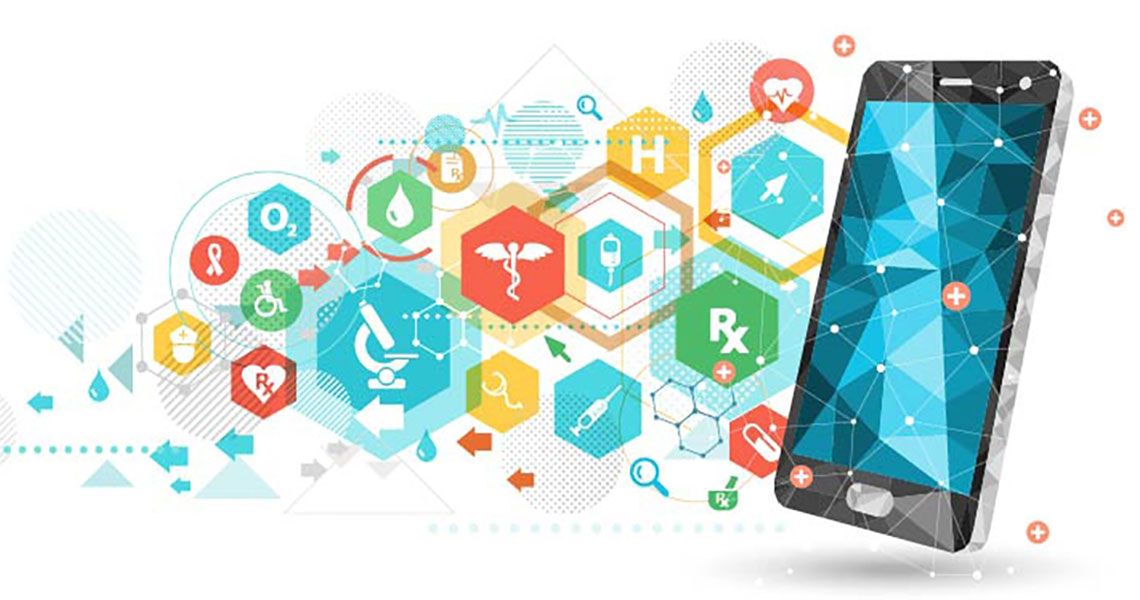Innovation and exploration reigned during the Second Annual Medical and Health App Development Workshop at the George Washington University (GW).
The half-day “hackathon,” sponsored by the Clinical and Translational Science Institute at Children’s National (CTSI-CN), a partnership between Children’s National Health System (Children’s National) and GW, featured 10 teams competing to win the top prize for best app and funding to develop a prototype.
For Jennifer Weaver, MA, OTR/L, research associate at the Center for Healthcare Innovation and Policy Research (CHIPR) at the GW School of Medicine and Health Sciences (SMHS), it was her second year attending the hackathon, and her first participating on a research team.
“I went last year … to explore it and see what the event was all about because I had no idea how to create an app,” she said. “This year, I worked with my research team on an idea, and we were really fortunate to present it at the hackathon. It was really fun.”
Weaver’s research team brainstormed an idea for an app that would aid in clinical assessments for injuries. Team members included Caitlin Carter, MPH, CHIPR research program associate; Dhineshvikram Krishnamurthy, MRI software engineer at Children’s National; Luke Domaleski, fourth-year MD student at SMHS; Ann Guernon, MS, CHIPR senior scholar; Theresa Pape, Dr.PH, CHIPR senior scholar; and Trudy Mallinson, PhD, OTR/L, FAOTA, associate dean for health sciences research at SMHS.
The winning app idea was Bear Genes, a genetic counseling tool that would provide information to patients on genetics topics through videos about particular conditions, treatments, and genetic testing, according to Natasha Shur, MD, researcher in the Rare Disease Institute — Genetics and Metabolism at Children’s National.
The team chose to participate in the event because they loved the idea of using smartphones and other technologies to communicate with patients more effectively. They also wanted to use the app to help “good genetic information” go viral, added Shur, because it’s important to raise awareness regarding rare disorders by making information about them more accessible and understandable.
“Bear Genes” team members included Marshall Summar, MD, director of the Rare Disease Institute and division chief of Genetics and Metabolism at Children’s National, and professor of pediatrics at SMHS; Debra Regier, MD, researcher in the Rare Disease Institute — Genetics and Metabolism at Children’s National, and assistant professor of pediatrics at SMHS; Carol A. Rentas, PhD, MEd, MT, director of undergraduate MLS programs and assistant professor of integrated health sciences at SMHS; Vera Lynn Fanomezantsoa, a student in the clinical translational program at GW; and Eileen P. Engh, MSN, NE-BC, RN-BC, CPN, a nurse project manager in the Department of Nursing Science, Professional Practice, and Quality Nursing Research and Translation at Children’s National.
“We brainstormed and came up with the app concept together,” said Shur. “We thought about what we would want to see as providers and what our patients would find most accessible and useful. We have been having so much fun thinking of what to include, how we can make these videos, and how we can put together an app that is for our families and kids, bringing them both information and inclusion in this growing field.”
She added that each member of the team brought different ideas to the app proposal, and that they are looking forward to translating the idea into clinical practice.
Other apps brainstormed at the event included one to help better track a person’s recovery of consciousness after traumatic brain injury, a tool to help patients or parents choose whether to go to the emergency department of their primary care provider, and an app for children with diabetes that would allow them to enter in their daily and weekly blood sugar, body weight, and blood pressure.
This year’s event grew from 2017, with entries increasing from 40 to 65 and participants increasing from 60 to 90, according to Sara Alyamani, program lead for the Collaboration and Multidisciplinary Team Science at CTSI-CN.



